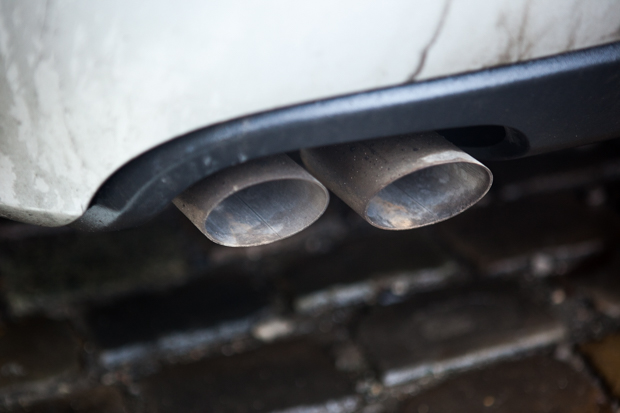
Peter Liese on the dispute over the phase-out of the combustion engine
- Details
Combustion engine phase-out is and remains wrong, but German Liberals woke up too late / No short-term solution in sight / The dispute will weigh on the EU summit, but the summit will not bring a solution / Damage goes far beyond climate and environmental policy
“The EU institutions' decision to phase out the internal combustion engine is and remains wrong. Politics should only set targets and not ban certain technologies. Climate-neutral e-fuels should be part of the solution,” affirmed the environmental policy spokesperson of the largest group in the European Parliament (EPP, Christian Democrats) Peter Liese. Nevertheless, Liese massively criticised the approach of the German Federal Minister for Transport Volker Wissing and the German Liberals: “Mr Wissing and the Liberals in the government have agreed to the combustion engine phase-out three times at European level. Firstly, in June in the Council of Ministers; secondly, in October after the trilogue, when Wissing literally stated that he welcomed the EU's decision to phase out the internal combustion engine1; and thirdly, in November, when the German government agreed to the compromise in the Committee of the Permanent Representatives to the EU after consulting the Ministry of Transport. The current uproar is not justified by a change of facts, but is a purely political manoeuvre after the disastrous election result in Berlin for the FDP. This is not the way to do politics in Europe. The damage goes far beyond environmental and climate policy. In the future, every member state will be able to call everything into question again after the negotiations have been concluded and after it has been agreed several times. This can affect Germany massively, because we depend much more on a functioning European Union, especially a functioning internal market, than other member states.”
Read more: Peter Liese on the dispute over the phase-out of the combustion engine
Peter Liese in the run-up to the publication of the latest Intergovernmental Panel on Climate Change (IPCC) report:
- Details
Massive effort on negative emissions and stronger global orientation of European climate policy /Aim is climate-neutral industrial region as a model for other parts of the world / Negotiate hard on implementation of border adjustment mechanism CBAM
Next Monday, the highly anticipated latest report of the Intergovernmental Panel on Climate Change (IPCC) will be published. The scientists are expected to warn in particular about the danger of extreme weather events. “The individual reports on which the so-called synthesis report of the IPCC is based on describe quite clearly that extreme weather events, such as the floods in Germany in July 2021 and extreme drought in many regions of the world are linked to climate change, and that these events will become much more frequent if we do not counteract them vigorously. I expect this to be clearly underlined again on Monday," said the environmental spokesperson of the largest group in the European Parliament (EPP, Christian Democrats) Dr Peter Liese.
Peter Liese on the report of the Intergovernmental Panel on Climate Change (IPCC):
- Details
This document must shake up all those responsible worldwide and motivate them to do even more to protect the climate / Promote negative emissions more strongly / Climate-neutral industry as a model for the world / Implement border adjustment mechanism (CBAM) with commitment
"This document must shake up those responsible worldwide and motivate them to do much more to protect the climate," this was the reaction of the environmental spokesman of the largest group in the European Parliament (EPP, Christian Democrats), Dr Peter Liese, to the publication of the latest report of the Intergovernmental Panel on Climate Change (IPCC). The publication of the report had been delayed because China in particular had tried massively to water down the findings. However, the report now forcefully points out the drastic damage that unchecked climate change will cause for future generations. It emphasises that the 1.5 degree limit can still be met, but that this requires technologies that not only limit emissions, but also remove CO2 from the atmosphere. These technologies (Carbon Dioxide Removal - CDR) must be significantly expanded. The report also emphasises that in some regions of the world the decoupling of CO2 emissions and quality of life has begun meaning high quality of life is achievable with low emissions.
Read more: Peter Liese on the report of the Intergovernmental Panel on Climate Change (IPCC):
Vote on important climate law: Environment Committee supports drastic reduction of the so-called f-gases
- Details
REPowerEU targets for heat pumps and challenges to health sector considered in F-gas free technology in EU
The Environment Committee of the European Parliament today adopted its position on the revision of the F-Gas Regulation. A broad majority supports the Commission's proposal to reduce F-gas emissions and thus the impact of greenhouse gases on the climate. “This is an important contribution to climate protection. We have even strengthened the Commission proposal in some places.”commented the environmental spokesperson of the largest group in the European Parliament (EPP- Christian Democrats), Peter Liese.
However, a particularly sensitive part of the regulation concerns the heat pump sector. Contrary to the Commission proposal, the position adopted today in Committee provides for a complete ban on F-gases for a large proportion of heat pumps from 2026 onwards (for split heat pumps of less than 3kg from 2027). “The phase-out of F-gases, as voted today by the Environment Committee, is very ambitious. It was therefore important for the EPP to make sure that the much needed heat pump run-up, as announced in the framework of REPowerEU, is not endangered. We have therefore added an emergency break, in case REPowerEU targets cannot be met with F-Gas free technologies.”, MEP Kympouropoulos the EPP Shadow Rapporteur commented.



